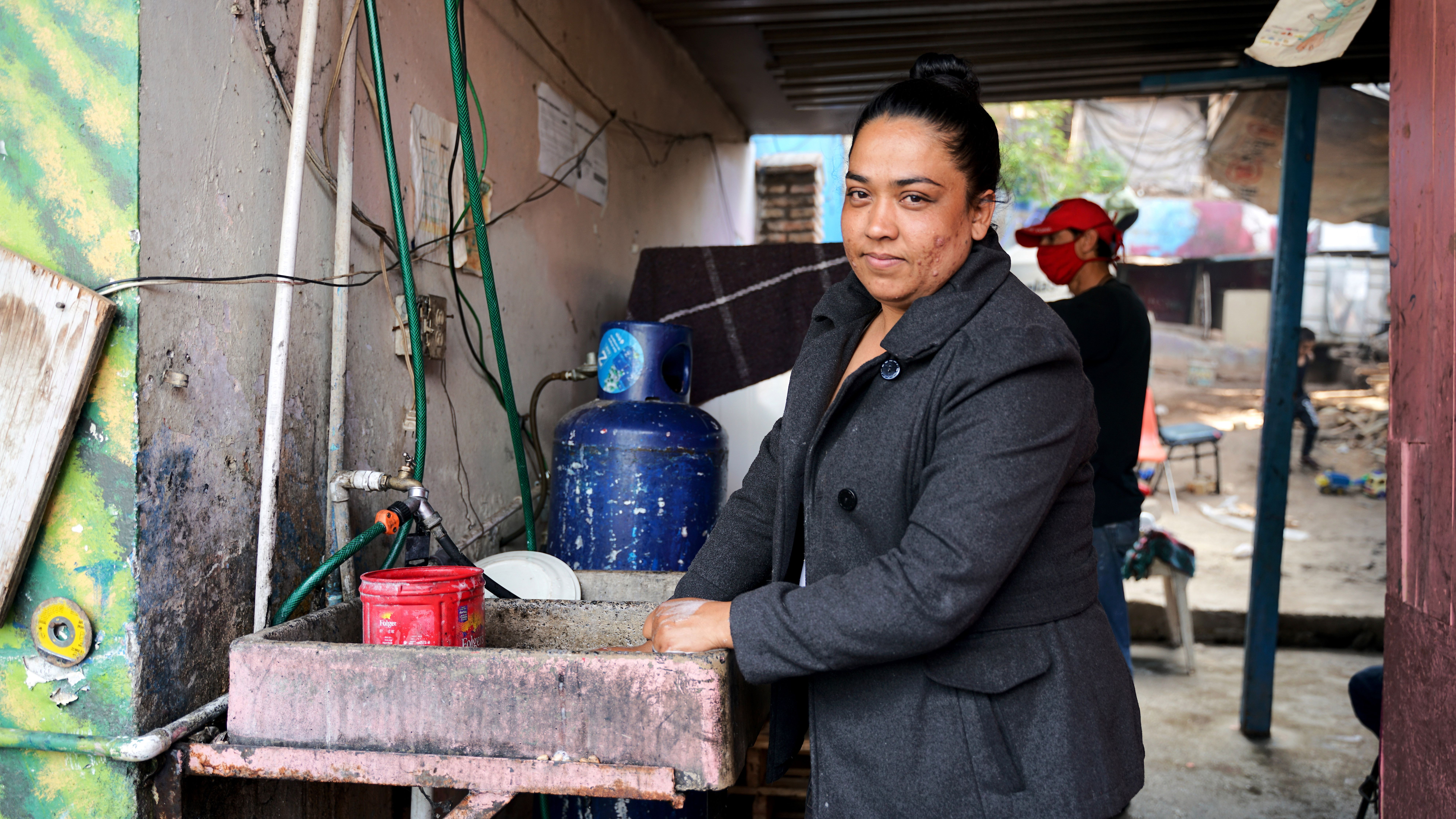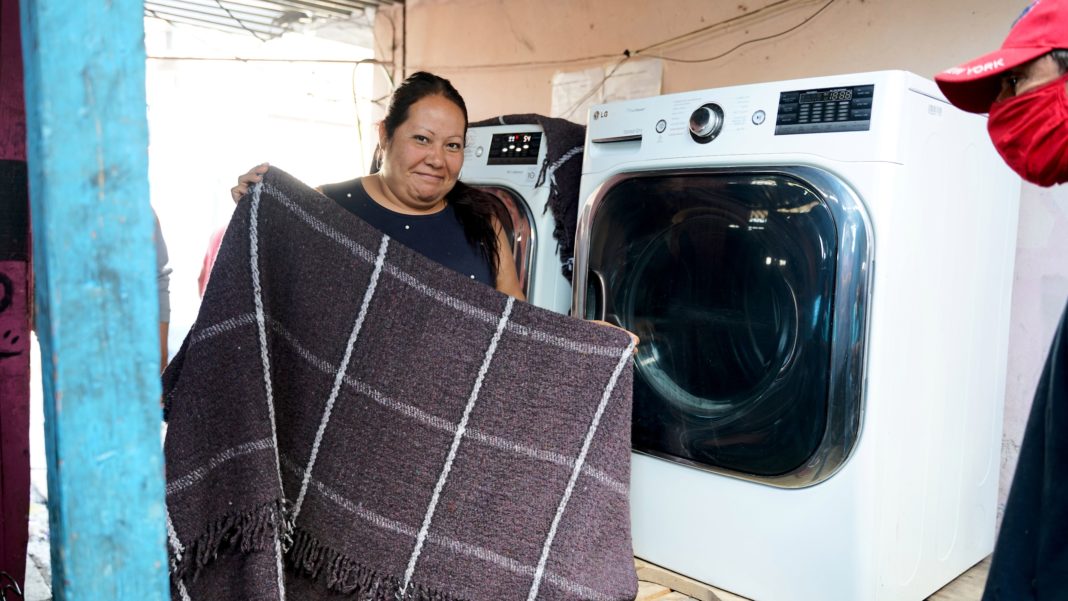California organization donates industrial equipment to help protect immigrants
Laura Elena Martínez, the laundry manager at the Roca de Salvación migrant shelter in Tijuana, Mexico, remembers being alarmed when she found out that one of the main medical tips to prevent coronavirus infections was to keep clothes and blankets clean, and preferably to wash the clothes when returning from the street to the house.
For a shelter that on average shelters more than 70 people and armed only with a concrete laundry and an old and small washing machine, Laura Elena thought that they were commissioning an almost impossible task.
"I only put a blanket in the washing machine, which came out squeezed but still damp and hung it up in the hope that it would dry before bedtime, when they needed it," he recalls.
But the virus arrived in Tijuana in March, when the rains continued and clothes washed by hand or in the old washing machine were dried by miracles or by leaving them, several days, lying under the roof.
It was when a civil organization in San Diego, Ángeles de la Frontera —for its translation of the name BorderAngels— ordered the installation of a commercial washing machine with industrial capacity and a matching dryer in the shelter.
"The idea was to help the community in the shelter to have clean clothes, but strategically to have a powerful weapon against the coronavirus: neatness," the organization's executive director, Dulce García, told La Opinion.
He commented that among the main recommendations for the contingency due to the COVID-19 pandemic is to have clean clothes and make sure to decontaminate them after walking on the street, but said that for refugees in shelters in Tijuana, meeting those expectations for cleanliness can be difficult.
“They are people who do not have closets full of clothes; they have so little that sometimes they wait for the clothes to finish drying before putting them back on, because the luggage and items they own are heavily militated, ”explained García, an immigration attorney.
"In a city where masks and disinfectants are exhausted, cleaning clothes and blankets is also recommended, strategic," he explained.

So far Ángeles de la Frontera has installed five teams of industrial capacity washers and dryers in some of the migrant shelters in the largest communities in Tijuana.
Along with the Roca de Salvación shelter, the group installed a washer and dryer in Embajadores de Jesús, the settlement that includes Little Haiti, Ciudad de Dios, on the outskirts of Tijuana.
The Angeles de la Frontera organization plans to install more equipment in shelters during the remainder of May and June.
“We know that this is a new virus that has come to somehow stay and what we want is that some of the most unprotected people in Tijuana, the most vulnerable in the city, have a permanent way of defending themselves, helping them to be as clean as They have told us that they want to be there, ”said García.
The intention is complemented by the fact that they are energy saving equipment.
A new high-capacity washing machine could even consume less energy than the washing machine they call "the old lady" at the Roca de Salvación hostel.
For Laura Elena Martínez, the laundry manager at that shelter, the difference is enormous.
Laura Elena says that the laundry chores can be calculated by washing the blankets, and to a lesser extent, the towels and sheets, because they are the ones that take the most time and need more effort to be clean.
"Now I can wash and then dry four thick blankets together and they are well washed, smelling clean," he said.
He said he finishes washing all the blankets at the shelter every four or five days, while continuing to wash the migrants' clothes, another part of the laundry task that stopped being done on the cement laundry.







